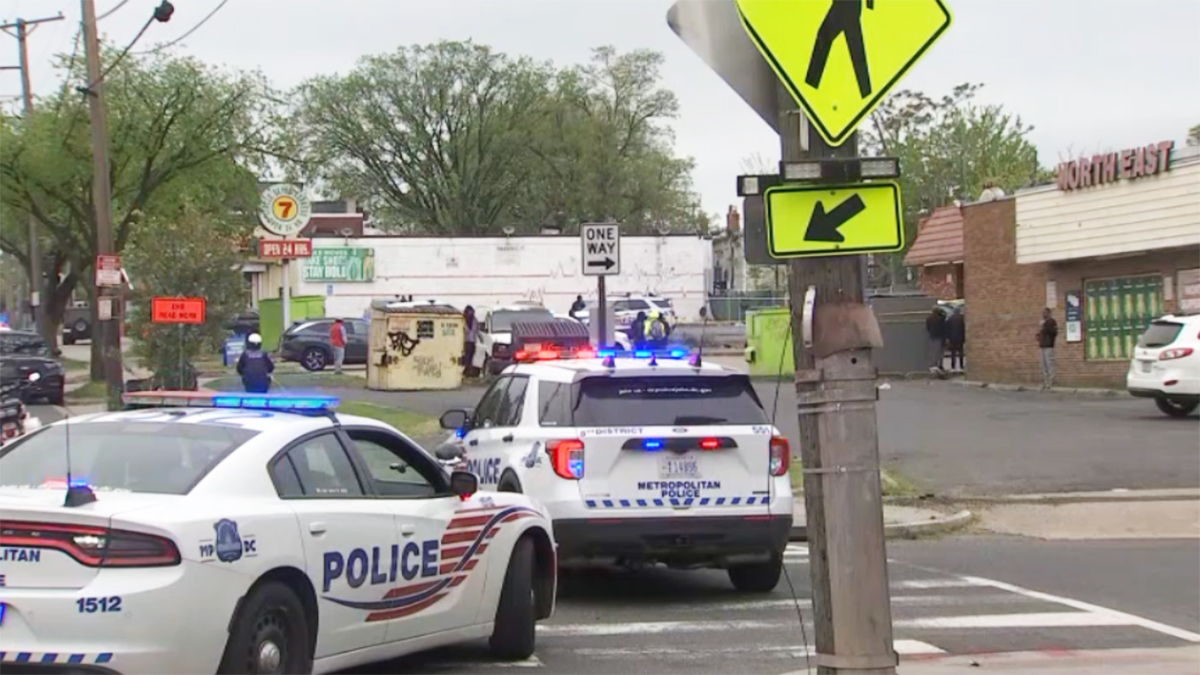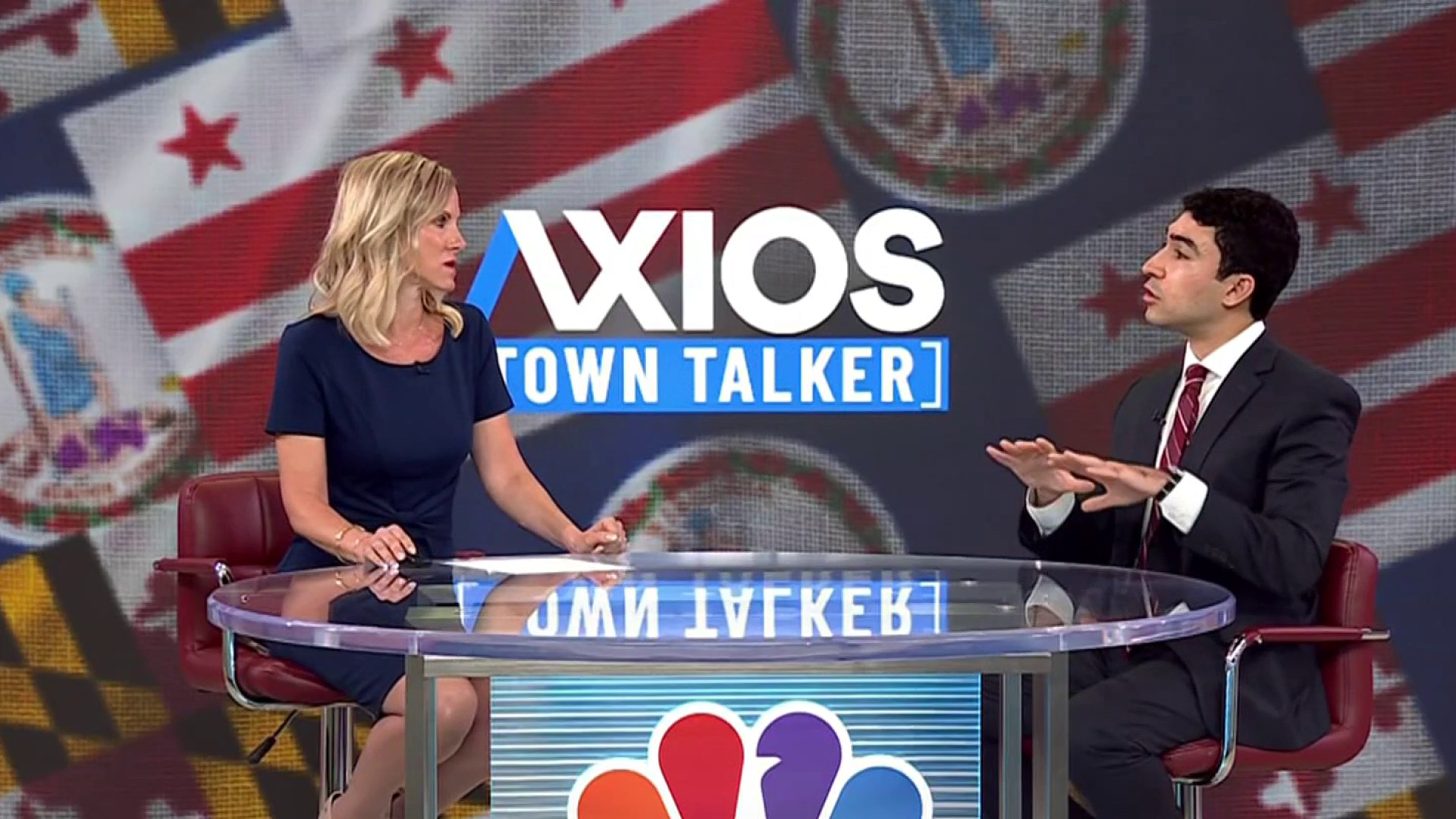JARRATT, Va. -- John Allen Muhammad had no final words and witnesses said he was calm, quiet and unemotional as he died by lethal injection at Greensville Correctional Center at 9:11 p.m. Tuesday, closing the final chapter on a series of shootings that terrorized the D.C. area in 2002.
Muhammad, 48, was the man behind the sniper attacks that turned the lives of those who lived in the nation's capital region upside down for a three-week span that October.
For his execution Tuesday, Muhammad wore a blue shirt and blue jeans and looked very clean cut, said Jon Burkett, of WTVR-TV in Richmond. One chemical was administered to render Muhammad unconscious. Another stopped his brain and another stopped his heart.
"Mr. Muhammad, do you have any last words?'' the warden asked Muhammad in the death chamber, but he refused to utter any final words.
The victim's family sat behind mirrored glass, so they could see Muhammad but he could not see them.
"He died very peacefully, much more than most of his victims," said Prince William County prosecutor Paul Ebert, who witnessed the
execution.
Prison spokesman Larry Traylor said Muhammad was strapped in by 9 p.m. and the first injection was administered at 9:06 p.m. After the first of the three-drug lethal cocktail was given, Muhammad blinked repeatedly and took about seven deep breaths. Within a minute, he was motionless.
"The only reaction you really could tell was when they pronounced him dead at 9:11 and everyone was like, 'Oh, the irony in that, he was pronounced dead at 9:11,'" Burkett said.
Muhammad's attorneys asked Virginia Gov. Tim Kaine to commute his sentence to life in prison because they said he was mentally ill, but Kaine declined Tuesday, one day after the U.S. Supreme Court denied a stay of execution request. Kaine said he found no compelling reason to commute the jury's sentence.
"I think crimes that are this horrible, you just can't understand them, you can't explain them," said Kaine, a Democrat known for carefully considering death penalty cases. "They completely dwarf your ability to look into the life of a person who would do something like this and understand why."
Muhammad was sentenced to death for killing Dean Harold Meyers at a Manassas gas station during a spree that left 10 dead across Maryland, Virginia and Washington, D.C. He and his teenage accomplice, Lee Boyd Malvo, who is serving a life sentence in Virginia, also were suspected of fatal shootings in other states, including Louisiana, Alabama and Arizona.
"We extend our condolences not only to the families and loved ones of the victims, but also to the family and loved ones of John Allen Muhammad,'' said J. Wyndal Gordon, one of Muhammad's attorneys. "It's just a tragic situation all around."
Earlier, Muhammad met with relatives in the hours before his execution, and one of his attorneys described him as fearless. Muhammad had no regrets, attorney Gordon said.
"He is absolutely unafraid and he will die with dignity -- dignity to the point of defiance," Gordon said.
Muhammad met with one of his sons before the execution and then reminisced with the attorney about the time he spent with his son before going to prison.
Local
Washington, D.C., Maryland and Virginia local news, events and information
Malvo confessed that, at Muhammad's direction, he shot Cheryll Witz's father, Jerry Taylor, on a Tucson, Ariz., golf course in March 2002. She planned to watch the execution.
"He basically watched my dad breathe his last breath," she said. "Why shouldn't I watch his last breath?"
Sonia Hollingsworth-Wills sat in the back seat of a car outside the Greensville Correction Center, surrounded by friends and family. Her son, Conrad Johnson, was the last victim, killed Oct. 22, 2002, in Aspen Hill, Md.
"It was the most horrifying day of my life," she said. "I'll never get complete closure but at least I can put this behind me."
She said did not want to witness Muhammad's execution but wanted to be there and was counting the minutes until his execution.
She called Muhammad a demon.
The shootings terrorized the Washington region, convincing many people to stay indoors as much as possible. When outside, some people took to bobbing and weaving as they walked.
Police captured the snipers on Oct. 24, 2002, at a Maryland rest stop in a car they had outfitted to allow a gunman to hide in the trunk and fire through a hole.
Prosecutors chose to put Muhammad and Malvo on trial in Virginia first because of the state's willingness to execute killers. He and Malvo were also convicted of six other murders in Maryland and sentenced to six life terms.
The death penalty was ruled out for Malvo, who was 17 during the killings, because the U.S. Supreme Court barred the execution of juveniles.
The motive for the shootings remains murky. Malvo said Muhammad wanted to use the plot to extort $10 million from the government to set up a camp in Canada where homeless children would be trained as terrorists. But Muhammad's ex-wife has said she believes the attacks were a smoke screen for his plan to kill her and regain custody of their three children.
Muhammad has never testified or explained why he directed the attack on victims who were gunned down doing everyday chores.
Muhammad had been in and out of the military since he graduated from high school in Louisiana and entered the National Guard. A convert to Islam, John Allen Williams would later change his name to Muhammad.
He joined the Army in 1985 and trained in Washington state as a combat engineer. He did not take special sniper training but earned an expert rating in the M-16 rifle -- the military cousin of the .223-caliber Bushmaster rifle used in the sniper shootings.
However, his life was full of failure. He was twice divorced, and after serving in the first Iraq war, he could never find financial stability.
He opened a karate school but it didn't last; neither did his car repair shop. The man who looked for self-discipline in exercise and Islam found himself living in a homeless shelter in 2001 and a few months later was accused of shoplifting food.
Sheron Norman, a sister of one of Muhammad's ex-wives, said Muhammad returned from the first Gulf War a changed man. She said the nation should do a better job of caring for its veterans.
A small group of death penalty opponents gathered on a grassy area near the prison and had a sign reading, "We remember the victims, but not with more killing."
Beth Panilaitis, executive director of Virginians for Alternatives to the Death Penalty, said those who planned to protest understand the fear that gripped the community, and the nation, during the attacks.
"The greater metro area and the citizens of Virginia have been safe from this crime for seven years," Panilaitis said. "Incarceration has worked and life without the possibility of parole has and will continue to keep the people of Virginia safe."
Kaine, Virginia's first Roman Catholic governor, has openly expressed his faith-based opposition to capital punishment, but promised as a candidate in 2005 that he would carry out Virginia's death penalty law despite his beliefs.
Learn more about Virginia's Death Row here.
___
Associated Press writers Steve Szkotak in Jarratt and Bob Lewis in Richmond contributed to this report.



